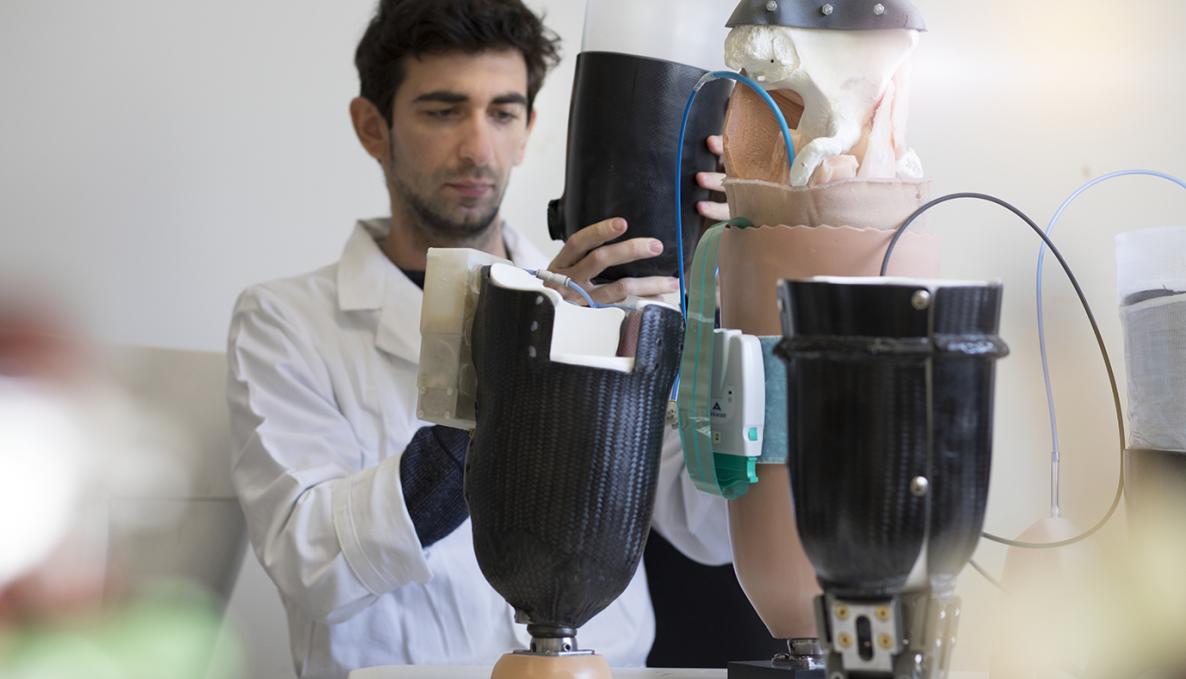European research project examines academic training needs in orthopaedic technology

According to the World Health Organization (WHO), from more than 500 million inhabitants of the European Union, at least 2.5 million people live with disabilities. These people, among them 850,000 children, are in need of orthopaedic aids. Following WHO standards, to meet this need, at least 25,000 trained Orthotists and prosthetists will be needed in future. With the PROMOTE project (Prosthetic and Orthotic specialist MOdules for higher education Training in Europe), a consortium of three European universities and two educational institutions is now investigating the academic training needs in orthopaedic technology.
Established universities in the field of prosthetics and orthotics, like Thomas More University, Belgium, and Scuola Superiore Sant'Anna, Pisa, are participating in the project, which is being led by the PFH Private University of Applied Sciences Göttingen. In addition, Human Study e.V., Nuremberg, and blinc eG, Göttingen, are contributing their expertise in blended distance learning programmes and in developing innovative teaching methods in an international environment. Based on an analysis of existing educational offerings and EU-wide needs in orthopaedic technology, the research consortium is now developing an innovative teaching model for orthopaedic technology that is intended to be transferable throughout the EU. "In particular, we want to counteract the enormous shortage of trained specialists in the field of orthopaedic technology, which is not covered by the existing education and training systems," explains Prof. Frank Braatz, MD, Professor of Medical Orthobionics at the PFH. "The development and implementation of an innovative educational system are intended to meet both the practice-oriented requirements of the labour market and the quality standards of schools and universities," Braatz continues. In doing so, the teaching model is based on the international standards for patient care defined for education by the International Society for Orthopaedic Technology (ISPO) and according to which universities and educational programms are accredited worldwide.
Inventory analysis completed in Europe
The research team has already completed the first part of the PROMOTE project, which is funded by the German Academic Exchange Service (DAAD) under the Erasmus+ 2020 programme. To gather EU-wide data on current educational offerings and needs, in the first step, the project team used various survey methods, including desk research, an extensive questionnaire sent to schools and universities, and face-to-face interviews with industry representatives. Based on these results, the research team will identify the required competencies for future specialists, define learning and teaching content, and develop a learning platform.
The project’s main goal is to establish a modular learning program for trained workers, students and also teachers. A traditional cucciculum should be be mixed with specialized courses. All of that is based on an English blended learning format with online and face-to-face lessons, which fulfill the ISPO criteria.
The project is scheduled to run for three years. The EU is funding the project as part of the "Erasmus+ 2020 / Strategic Partnerships in Higher Education" programme. Further information: https://promote-po.eu/



